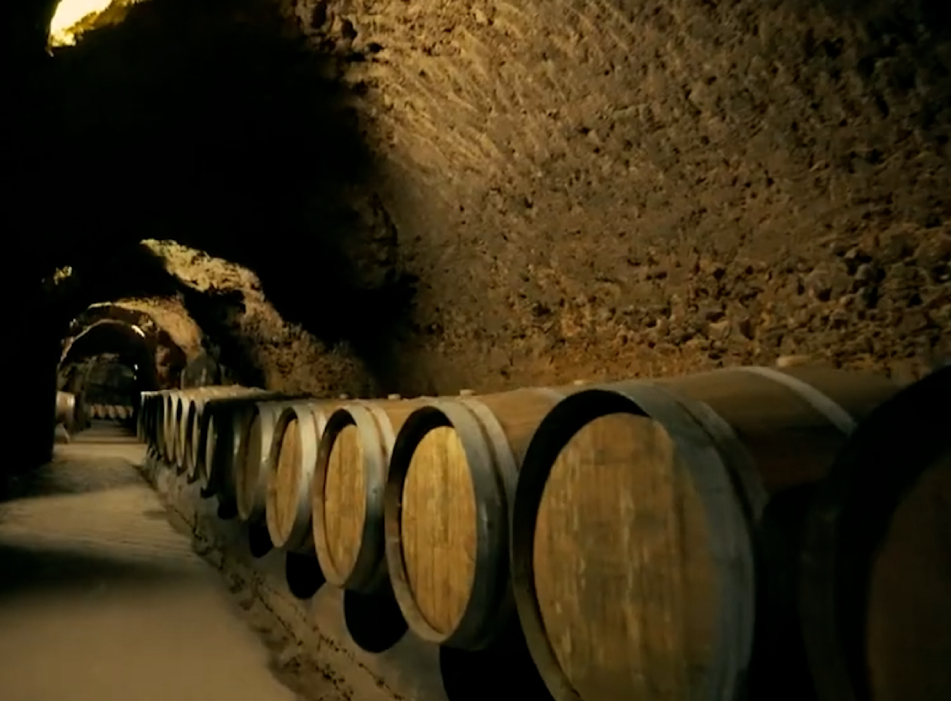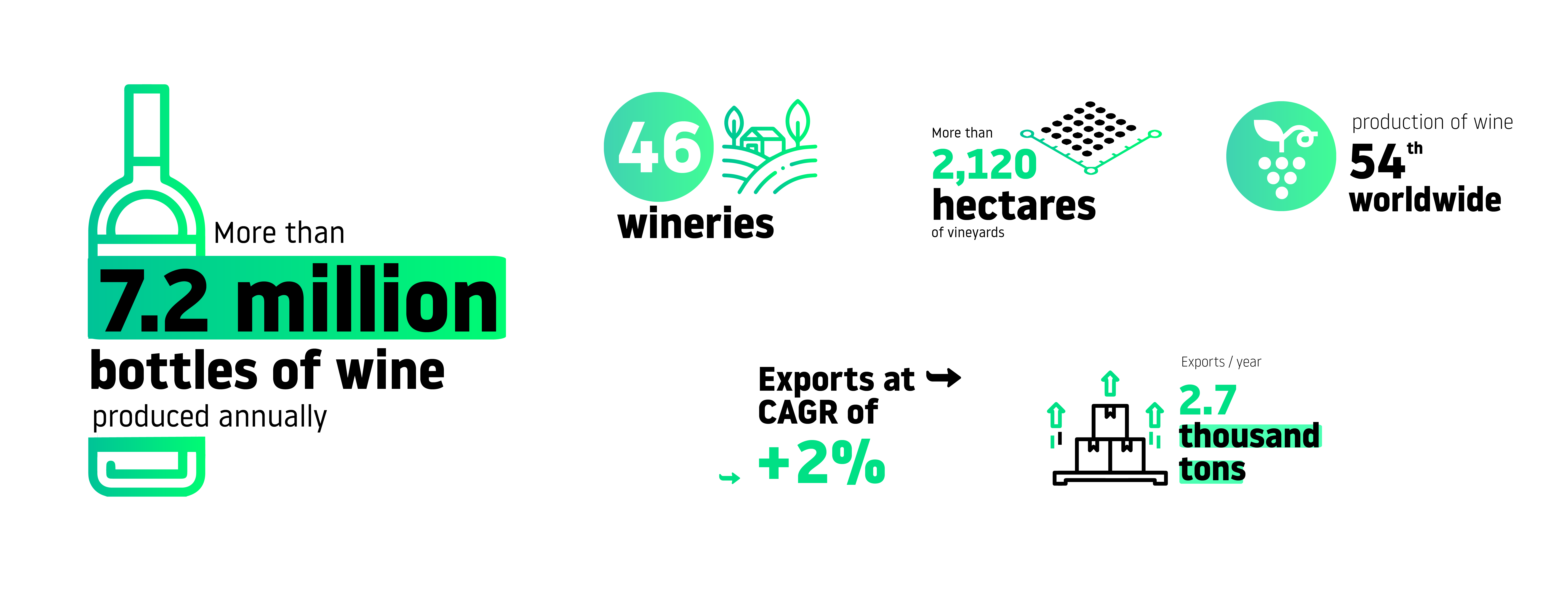Wine
Discover the legacy, goût de terroirs, and innovative processes embodied in Lebanon’s wines
Overview
Lebanese wine is considered today an ambassador to Lebanon in foreign countries due to its unique taste and diversity.
The country, privileged by its unique geography and Mediterranean climate has outstanding conditions for producing wine. The presence of prolific terrains for vineyards extending from north to south has allowed winemakers to offer a broad range of wines of more than 21 different varieties, each with its own characteristics.
Lebanese vineyards cover more than 2,120 hectares. Based on the Food and Agriculture Organization (FAO), Lebanon ranked 54th worldwide in the production of wine in 2018, with a total production of 7.2 million bottles (0.75 cl) and a share of 0.03% of world production. More than half of local production is destined for export markets.
While the history of Lebanese wine dates back to more than 7,000 years ago, the industry is witnessing constant modernization and innovation.
The significant level of investments in new technologies and modern equipment is a reflection of the sector’s capitalization on Research and Development to ensure competitiveness. Several distinguished flavors were launched throughout the years to create a distinct image for Lebanese wine. Along with the rise of sustainable viticulture, an emerging trend in recent years is a shift towards organic and biodynamic wines. Wine tourism is in parallel booming with the presence of boutique wineries across the country.



Industry Players
Lebanon has 46 wineries with 4 large players representing 70% of the total market share of wine and producing annually more than 5 million bottles together. The top medium players produce on average between 100,000 and 500,000 annually while the small or niche boutique wineries usually produce less than 100,000 bottles annually.
The sector’s global success is based on many factors among them the presence of a strong industry association (Union Vinicole du Liban) that works with all stakeholders to ensure the growth of Lebanese wine and creates awareness at a local and global level on the uniqueness of Lebanese wine.
Most of the wine players in Lebanon enjoy a high reputation and have gathered throughout the years major international awards that have placed them on the global map of best wines.
Export Performance
Exports of wine has hovered between 2 to 2.7 thousand tons per year over the last few years. In 2020, Lebanon’s wine export value totaled $17 million, equivalent to 0.05% of world wine exports.
Exports of wine have been growing at a compounded annual growth rate of around 2% since 2012, offering consumers a unique combination of diversity, quality, innovation, and country image.
In 2020, around a third of Lebanon’s wine was exported to the United Kingdom (31%), accounting for the highest share of exports. This was followed by the United States (15%), France (9%), Belgium (7%), Norway (5%) and Canada (5%) (Source: Lebanese Customs).


Our Advantage
- Moderate climate with 4 distinct seasons, sun all year round as well as the variety of grapes available in Lebanon allows the production of high-quality wine.
- Internationally recognized industry players that blend innovation and experimentation with long tradition and expertise.
- Authentic wine that reflects the true identity and culture of Lebanon and the Lebanese.

